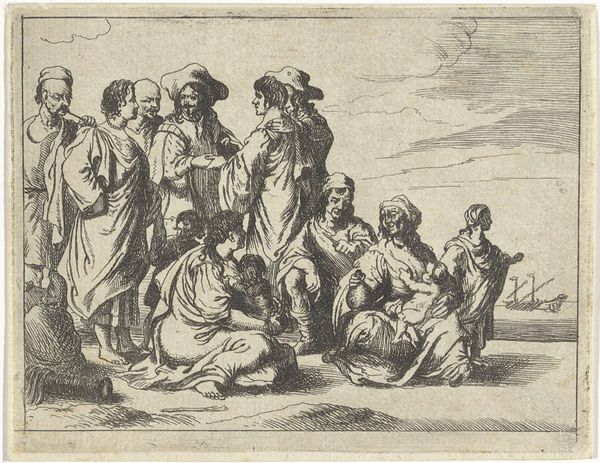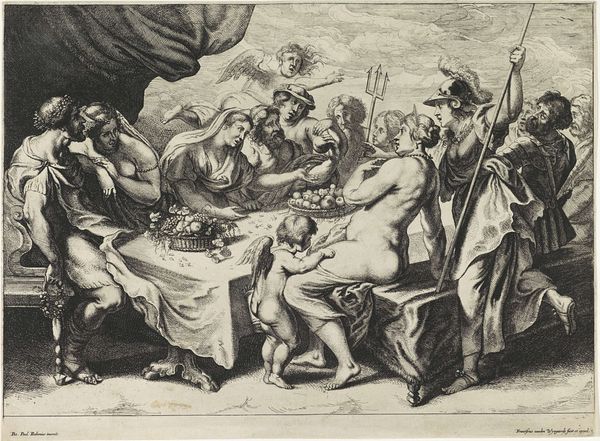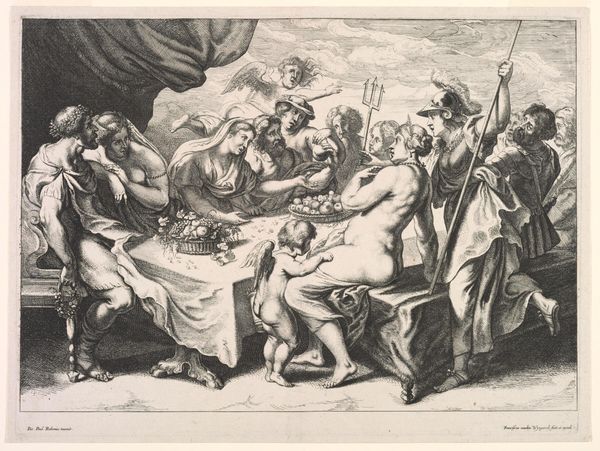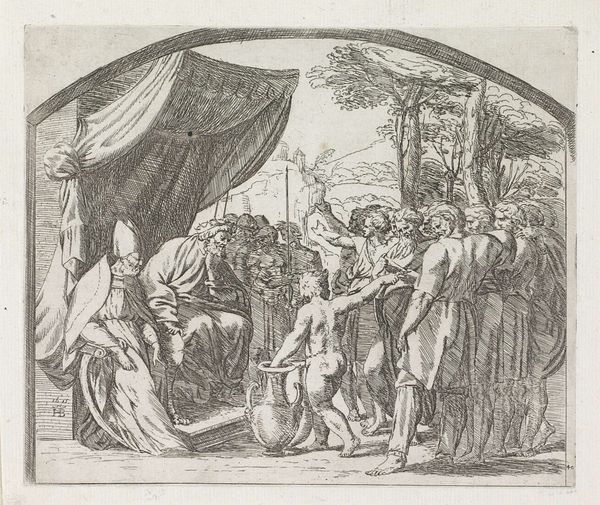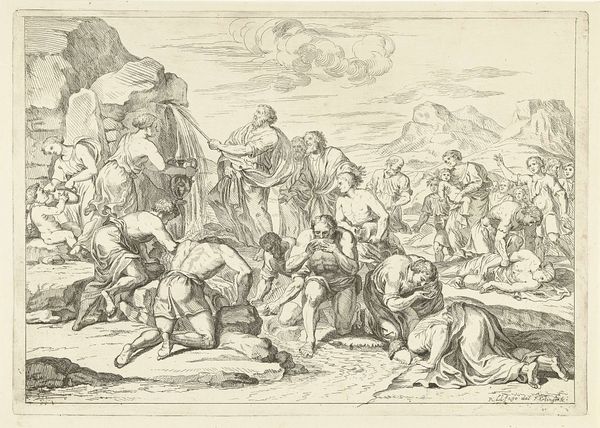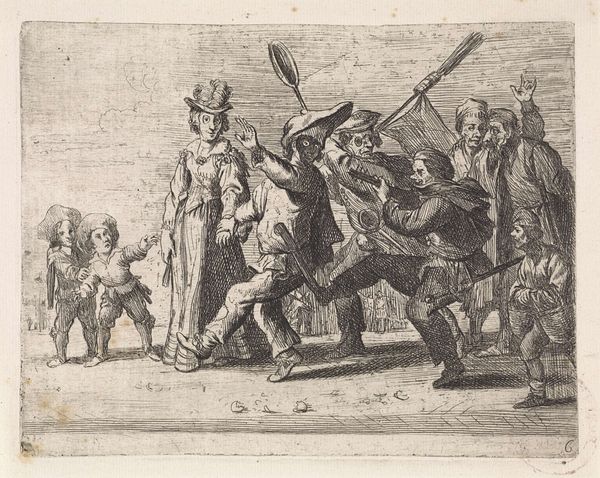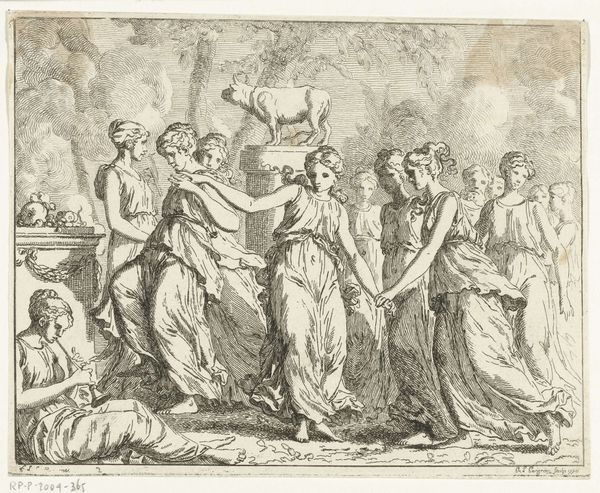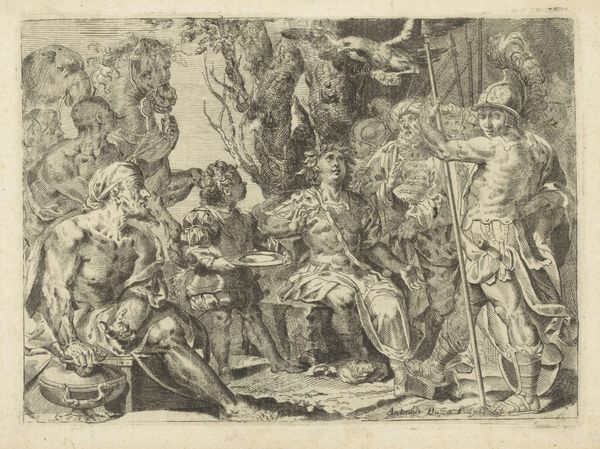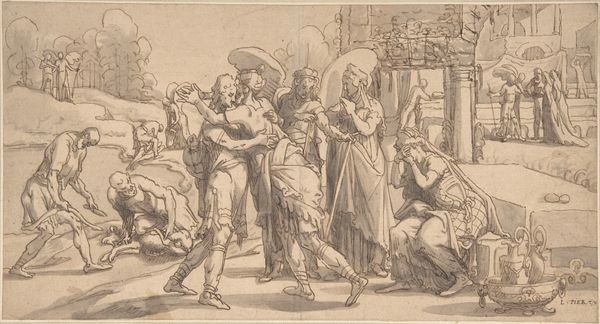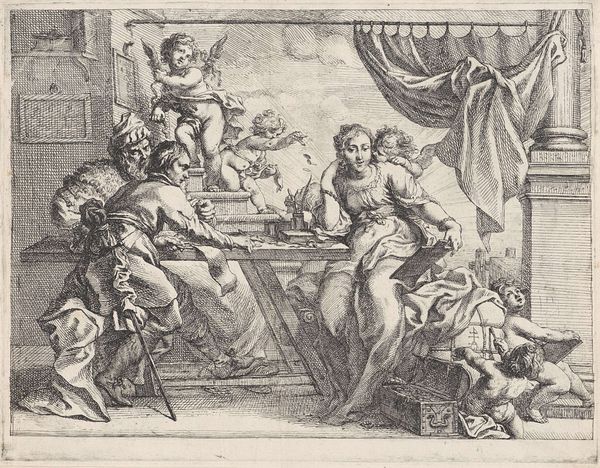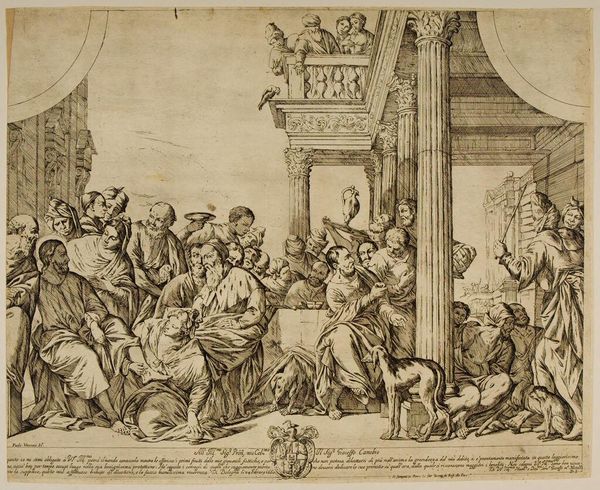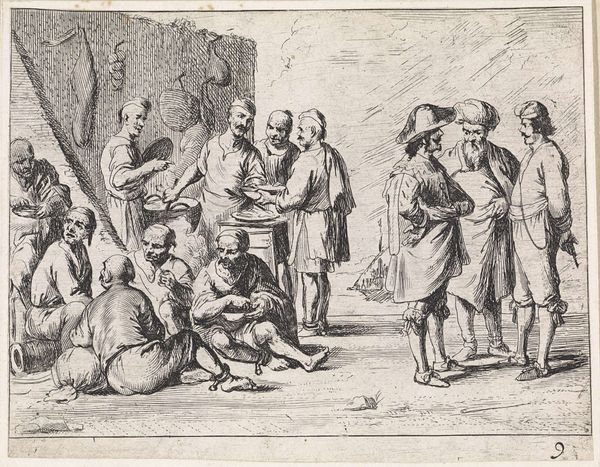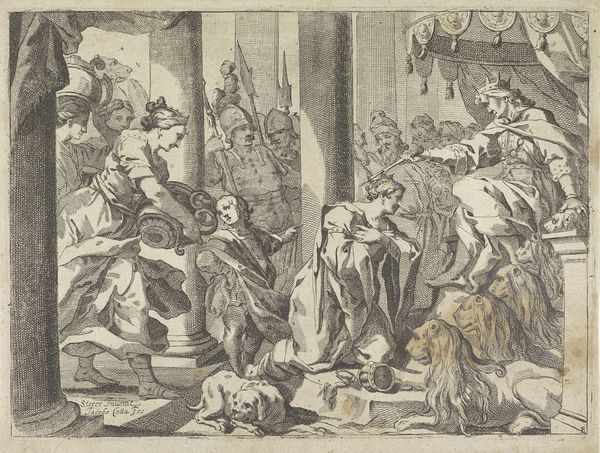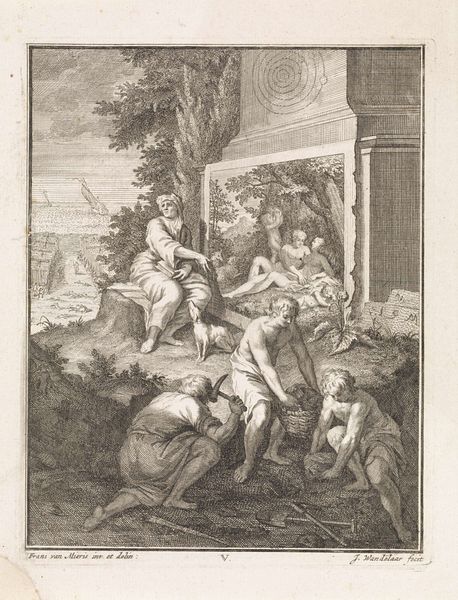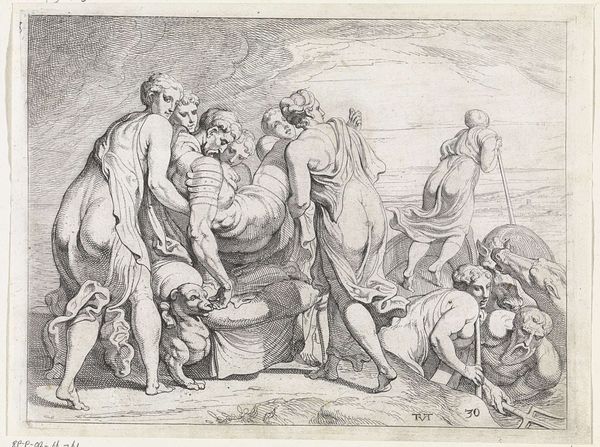
etching
#
narrative-art
#
baroque
#
etching
#
figuration
#
genre-painting
Dimensions: height 115 mm, width 149 mm
Copyright: Rijks Museum: Open Domain
Editor: This is "Waarzegster," or "The Fortune Teller," an etching by Cornelis de Wael, made sometime between 1630 and 1648. It feels… chaotic. There’s so much happening, so many people crammed into this space. What do you make of it? Curator: Chaos is a beautiful word for it. To me, it sings of the unpredictable nature of life, and isn’t that what a fortune teller embodies? Look closer at how de Wael uses line. See how the etching needles almost vibrate across the surface? This isn't just depicting a scene; it’s capturing a mood, a sort of fever-dream premonition. Almost like a memory we can barely grasp, isn’t it? Editor: It’s definitely growing on me! I was initially overwhelmed by all the figures, but now I see how each one contributes to the story. The rich clients being deceived versus the lived suffering on the ground…It feels very much like commentary. Do you think this kind of subject matter was common in Baroque art? Curator: Oh, absolutely. Baroque loved drama, the theatrical. And what's more dramatic than the encounter with fate? Also notice the influence of Caravaggio here—the stark contrast between light and shadow not only enhances the scene's dramatic effect, but suggests the presence of secrets and mystery. Did that leap out at you? Editor: Not initially, but I see what you mean. It’s like a spotlight on the transaction. So, from this "chaos," de Wael wove together elements of drama, morality, and social critique. It’s pretty potent, considering it’s just an etching. Curator: Exactly! De Wael wasn’t just showing us a fortune teller, but the tapestry of human desires and vulnerabilities. Editor: Thanks for pointing all that out! It shifted the work completely. I think my understanding has deepened profoundly today.
Comments
No comments
Be the first to comment and join the conversation on the ultimate creative platform.
